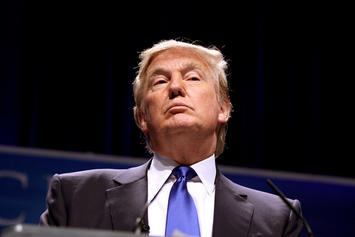
The real division in American politics today is no longer right or left, but rather between populism and an increasingly dominant corporate ruling class. This division is obvious within the Trump administration, elected on a nationalist and populist program but increasingly tilting toward a more corporatist orientation.
This matters far beyond the personality conflicts within the White House between the incendiary nationalists, led by “chief strategist” Steve Bannon, and a coterie of Wall Street insiders allied with Trump family advisers. The real question is not whether Trump dumps Bannon, who seems to lack the proper temperament for government, but if he is seen as betraying the Middle America constituency that elected him.
Most traditional conservatives reliably serve large corporate interests, and can be counted on to ignore the basic interests of middle- and working-class voters. This has been clear in the recent health care vote and on internet privacy legislation, and may also soon be obvious in the GOP’s tax reform efforts. Oftentimes, the move to the “center” is really about who is pulling the strings, notably the ubiquitous Goldman Sachs, whose alumni control top posts at both the U.S. Treasury and the National Economic Council. Unlike many Trump voters, these people have reason to be satisfied with the current state of Davos capitalism.
The origins of the new political order
The re-emergence of class and geography as primary political determinatives stems from numerous factors: increasing inequality, decline in middle-class jobs, immigration and regulations connected to climate change. These all place Main Street businesses, particularly in the Heartland, at a disadvantage to ever more concentrated, globalist and politically connected larger corporate interests.
In the primaries, the corporatist worldview generally was embraced by most major GOP candidates, with the notable exception of Trump. Similarly, the race for the Democratic nomination pitted former Secretary of State Hillary Clinton, a legendary magnet for corporate cash and favor-granting, against Sen. Bernie Sanders, a crusty septuagenarian with openly socialist leanings. That Trump won, and Sanders, against determined opposition in the Democratic establishment, almost beat Clinton, reveals just how strong the populist strain has become across the political spectrum.
Sanders didn’t openly attack then-President Barack Obama, but he assaulted policies tied to the Obama-allied postindustrial corporate elite. He denounced, without naming names, Obama’s remarkable forbearance with the financial titans who engineered the housing bust. Sanders did best not among the affluent or aggrieved minorities, the base of the gentry Democratic Party, but rather among white voters, particularly the younger cohorts, many of whom are swelling the ranks of the precariat of part-time, conditional workers.
Read the entire piece at The Orange County Register.
Joel Kotkin is executive editor of NewGeography.com. He is the Roger Hobbs Distinguished Fellow in Urban Studies at Chapman University and executive director of the Houston-based Center for Opportunity Urbanism. His newest book, The Human City: Urbanism for the rest of us, was published in April by Agate. He is also author of The New Class Conflict, The City: A Global History, and The Next Hundred Million: America in 2050. He lives in Orange County, CA.
Photo: Gage Skidmore, CC License












